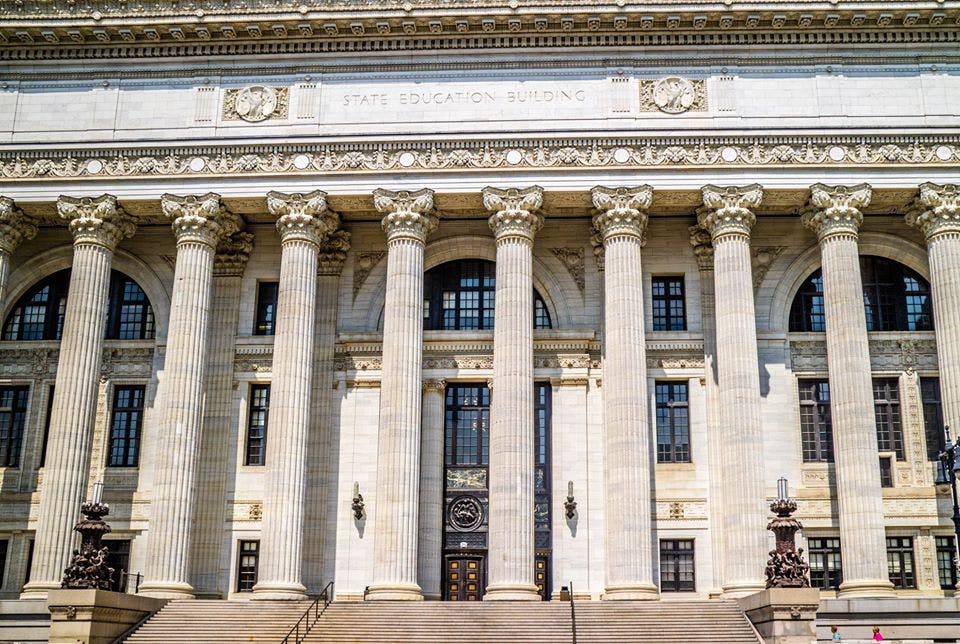A Friendly Challenge to the New York Times
‘Whose education is more sound and basic? Is it the youngster who studied more math and history and little or no Bible? Or is it the youth who learned more Talmud and little or no math and history?’

As New York’s Regents weigh regulating chasidic yeshivas, the New York Sun today challenges the New York Times — publisher to publisher — to a public debate on these questions: “Whose education is more sound and basic? Is it the youngster who studied more math and history and little or no Bible? Or is it the youth who learned more Talmud and little or no math and history? And under our Constitution, who gets to decide?”*
The Sun offers this challenge in a cheerful and friendly spirit. We are moved to do so after the Times issued on Sunday the report on its long investigation into claims that some of the yeshivas in New York state are failing adequately to educate their students in secular subjects. It issued the dispatch as the state Board of Regents, urged on by the Times, prepares, as early as tomorrow, to begin moving against the yeshivas.
In a report on the controversy, the Times notes that the Sun’s publisher, Dovid Efune, is “an Orthodox Jewish man who has said he received no formal secular education after turning 11.” To which the Editor of the Sun, Seth Lipsky, told colleagues that his reaction to Mr. Efune’s education was similar to that of President Lincoln to General Grant’s drinking: “Find out what he’s drinking and get some to the rest of my generals.”
In any event, it was the Times’ remarking on Mr. Efune’s lack of formal secular education that ignited the idea of a debate between him and his counterpart at the Times, A.G. Sulzberger. Their papers have clearly staked out opposing positions — the Times in favor of a crackdown by the state education board and the Sun in favor of opposing any regulation that abridges religious free exercise rights of the yeshiva parents and pupils.
So we propose a debate between Messrs. Sulzberger and Efune each backing his paper’s position — to take place this fall on a date and at a venue to be agreed between the parties. Expenses would be shared equally. The two sides would agree on a moderator and be allotted, say, 200 tickets. Debate rules would be agreed upon beforehand, the outcome to be decided by the audience in a vote taken promptly at the debate’s end.
Let us just add that, in our opinion, both publishers are perfect for this. They are young parents with one eye on the present and the other turned to the future. One was educated at Ethical Culture Fieldston and Brown University, the other at Chabad-affiliated schools at Brighton, England, Florida, and Brooklyn, New York, and Yeshiva Gedolah Rabbinical College at Miami and the Rabbinical College of Pretoria, South Africa.
Finally, our guess is that both sides in this agree that the escalating showdown between the state and the yeshivas touches on first principles — among them the intimacies of family and religion, the role of the state, and the autonomy of communities — and towering constitutional questions. In other words, the very elements of liberty. So we look forward to the possibility that Mr. Sulzberger will accept this challenge.
________
* A version of these questions was posed in a column in the New York Post and the New York Sun by the then, and current, editor of the New York Sun. This attribution was omitted briefly in the bulldog edition.

